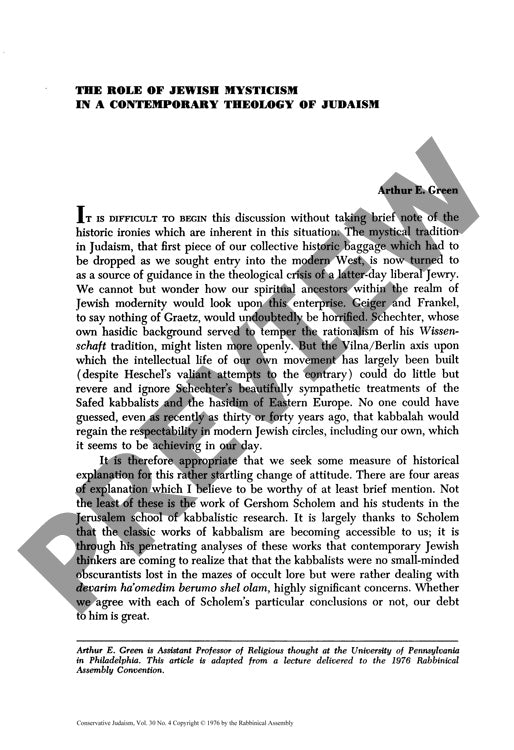The Role of Jewish Mysticism in a Contem
Couldn't load pickup availability
In the decades following the Holocaust, Jewish mysticism has reemerged as a vital force in theological discourse, offering fresh pathways beyond both the despair of post-Holocaust theology and the limitations of pure rationalism. Through historical-theological analysis of kabbalistic and Hasidic texts, particularly the works of Rabbi Nahman of Bratslav, four key factors emerge to explain this mystical renaissance: Gershom Scholem's groundbreaking scholarship, the Holocaust's fundamental challenge to rational theology, Western culture's broader mystical turn, and the dissolution of medieval philosophical frameworks for faith. The kabbalistic concept of tzimtzum (divine self-withdrawal) proves especially relevant, providing a theological framework for confronting apparent divine absence while sustaining religious affirmation. Jewish mystical traditions uniquely address contemporary spiritual crises by grounding religious truth in inner spiritual experience rather than historical or philosophical proofs. This approach validates religious imagination and "sacred fantasy" as legitimate theological tools, embracing symbolic rather than literal truth-claims. Contemporary Judaism requires "remythologizing" rather than continued demythologizing, calling for renewed spiritual inwardness, symbolic interpretation of tradition, and creative religious imagination. These mystical resources offer essential guidance for moving beyond theological despair toward authentic spiritual renewal while maintaining intellectual integrity in the modern context.

More Information
-
Physical Description
-
Publication Information
Published 1976
ISBN
-
Publication Credits
Arthur Green

